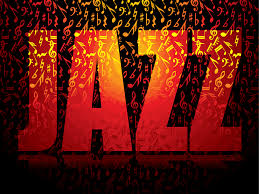Last year, I facilitated a roundtable discussion on plagiarism and intertextuality in poetry, where a group of teachers and writers talked about the way we use other texts to inspire and fuel our writing. As we talked, we realized that what might be called plagiarism in a formal essay is sometimes a creative tool in poetry.
This lesson plan puts that creative tool in action, asking students to create new poems by “sampling” classic jazz lyrics.
LESSON
Warm-up:
Make a list of lines or lyrics from your favorite songs.
Discussion:
Ask students if they know what sampling is in music. One definition is:
“The act of taking a portion, or sample, of one sound recording and reusing it as an instrument or a sound recording in a different song or piece.” (Wikipedia)
We often think of sampling as something that comes from hip-hop and rap, but in fact, sampling exists in jazz and in poetry too!
Writing Task:
Pass out a selection of Jazz Lyric Slips to each student or group of students, and explain that they are samples of lyrics from some classic jazz songs.
Ask students to create a 5-line “collage poem” using the Jazz Lyric Slips. If students want, they might integrate a line or two from their warm-up list too!
Share:
When students have had enough time to arrange their poems, ask for a few volunteers to share.
Explain to students that this type of poem is called a Cento:
“From the Latin word for ‘patchwork,’ the cento (or collage poem) is a poetic form made up of lines from poems by other poets.” (Poets.org)
Mentor Text:
Sampling can also mean mixing your own words with other people’s.
Read Aaron Pope and Jodi A. Shaw’s “Revelation,” and ask students what they notice about the sampling in this poem. Note that the epigraph and the lines in italics come from another poem, while the remainder is the original creation of the poets.
Revelation
by Aaron Pope and Jodi A. ShawBack to the quiet, knowing
these terrible iron tongues
no longer hammer
against the walls of my house.“Coming Back,” John Thomson
Frogs and crickets
crinkle the night,
shoot scat. The cats purr
and torture birds
in the back acre bush.
I went driving today, rolled
the windows down, stopped
for fiddleheads in Fredericton,
got lost driving home on the only known road
back to the quiet, knowing.The house is harvested
among sounds, it shrugs.
I strip the walls,
pull the nails,
the lath, the plaster,
on the floor in piles of dust
to dust. I do not have the tools to fix this mess. I
do not know how to revive what I have
killed. I cannot build. All the dead among
nails and bullets and words—these terrible iron tongues.I wrote nothing
serious today, just
five glosas and a guzzle
a day keeps the doctor away. I know
these are lies. Terry
tells stories and shouts at his camera.
He shouts what he’s found. The secret,
he says, is never believe
a word I say. Truth is a mantra
I no longer hammer.Thirty-three and all I have: a rifle,
five hunting knives, a matchbook,
muddy boots at the back door, a pile of
paper and ink stains—no firewood.
Why is it so dark? So goddamn cold.
Tired. Drunk. In this place we might be happy:
we might have been.
It is all in pieces, ruins, piles on the floor:
the things we could not hold
repelled against the walls of my house.
Writing Task:
Create a poem that uses sampling—you can sample lines from jazz songs, and lines from your warm-up list.
If you need a place to start, expand your collage poem by writing your own lines in between.
Wrap-up:
Invite students to share their poems aloud.
Photo (top) via Popshare




One response to “Poetic Sampling”
Dear Erika,
Many thanks for this wonderful lecture. I have been writing poems with this technique unknowingly. At the initially, I felt bad because I thought I was plagiarism. Even when that’s not my intention. I didn’t even know there was a name for this technique that I was employing in my poems. But my questions is this apart including an epigraph, are there any other to pay image to the poet’s whose work were remixed or sampled.
Regards,
Taiye